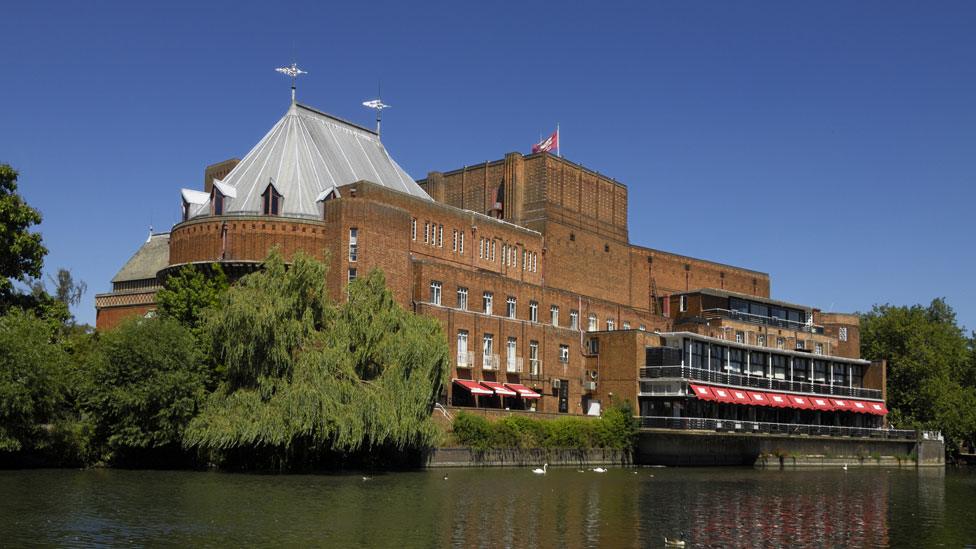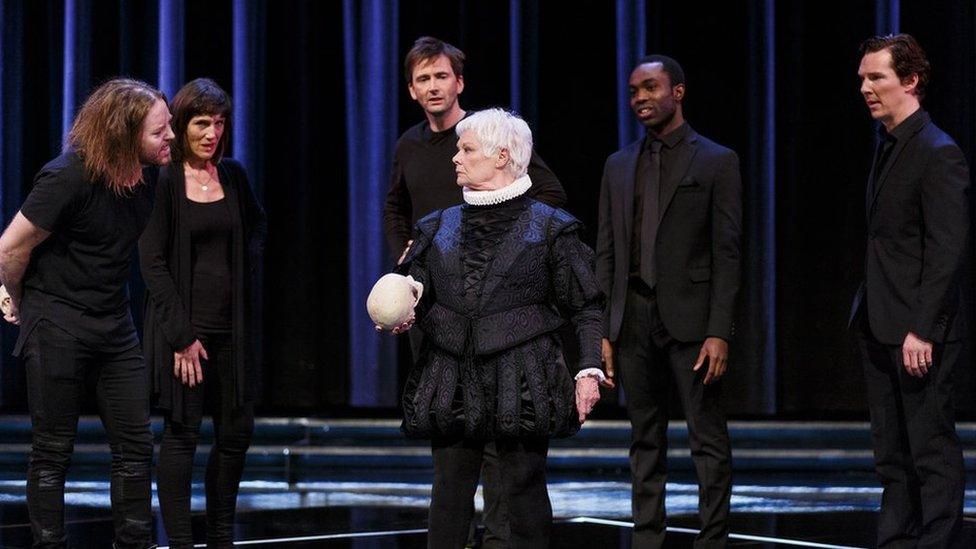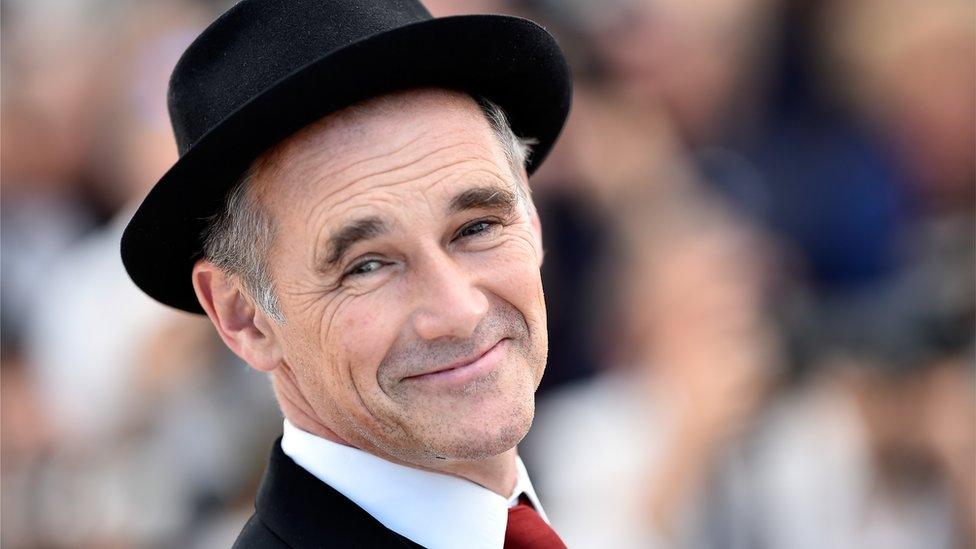Students threaten to boycott RSC over BP link
- Published

The Swan Theatre in Stratford-upon-Avon is owned by the RSC
School students have threatened to boycott the Royal Shakespeare Company over "sickening" links to oil giant BP.
The theatre company is sponsored by BP, which has been criticised by environmentalists including Oscar winner Sir Mark Rylance.
The students have sent a letter , externalto the RSC claiming the British multinational oil and gas company is "destroying our futures by wrecking the climate".
They want the RSC to break its ties with the fossil fuel industry.
Rylance resigned from the company over its association with the fossil fuel company in June, in order to "lend strength" to progressive voices in the organisation.
Now strikers from the birthplace of the Bard, in Stratford-upon-Avon, have signed the letter calling for an end to the current sponsorship, which provides young people with subsidised £5 tickets.
They've called for a boycott unless what they believe is environmental destruction is separated from the world of theatre, and have also asked to meet with RSC bosses.
The letter criticises BP for its environmental impact, lobbying and human rights record.
'Wrecking the climate'
It states: "If we, as young people, wish to see an affordable play at your theatre, we have to help to promote a company that is actively destroying our futures by wrecking the climate.
"BP is jeopardising the futures of these young people they apparently care so much about, by continuing to extract huge quantities of oil and gas, and actively lobbying against the climate change policies that we school strikers are pushing so hard for."
Adding: "Furthermore, BP's human rights record is an embarrassment. Their close relationship with repressive governments and regimes such as Egypt, Mexico and Russia has led to horrendous human rights violations.

(L-R) Tim Minchin, Harriet Walter, David Tennant, Dame Judi Dench, Paapa Essiedu and Benedict Cumberbatch performed at the RSC's Shakespeare Live! in 2016
"It is sickening that the works of Shakespeare are being associated with these events."
The letter concludes: "BP's influence is nothing but a stain on the RSC."
Catherine Mallyon, RSC executive director and Gregory Doran, RSC artistic director said: "We welcome the conversation around this issue and will respond once we receive the letter.
'Displeasure'
"We recognise the importance for a continuing, robust and engaged debate, we acknowledge the climate emergency and recognise the strength of feeling, especially amongst our young people.
"Our work with over 500,000 students annually means their feedback and opinions are very important to us."
More than 60,000 people signed a recent petition for cultural institutions - the British Museum, National Portrait Gallery and Royal Opera House - to end their financial ties with the BP, and climate activists To BP Or Not BP have campaigned against fossil fuel funding going into the arts.
"As a pupil of the school that Shakespeare attended himself, I cannot begin to explain my displeasure in learning about BP's recent sponsorship of the RSC's 16-25 tickets," said 16-year-old Stratford-upon-Avon student Chloe Hawryluk.
"If I want to attend the theatre, I want to attend the theatre without supporting a company that is continuing to extract fossil fuels."
She added: "I don't want to support a company that is one of the world's biggest emitters of greenhouse gases, I don't want to support a company that is only doing this to distract us from the fact that they are ruining our planet."
'Reducing emissions'
In response BP said they have been supporting the arts in the UK for more than 50 years and that their support allows the institutions they partner "to widen access and extend the reach of their productions and exhibitions".
They stressed their working relationship with the RSC dates back to 2011 and claim "to have helped around 10,000 young people benefit from reduced-price access to its world-class productions".
"Our position on climate is clear - the world is on an unsustainable path and needs to move to net-zero carbon emissions in the decades to come," said a spokesperson.
"We are reducing emissions in our operations, improving our products to allow customers to reduce their emissions and investing to grow low carbon."

Follow us on Facebook, external, or on Twitter @BBCNewsEnts, external. If you have a story suggestion email entertainment.news@bbc.co.uk, external.
- Published21 June 2019
